'Re-source Villard-de-Lans'
Alban Thoral, Philippe Paumelle,Yann Mazimann,Victoria Schulz-Daubas,Andrew Smith & Justine Peyre.
Villard-de-Lans, France
Located in France, west of Grenoble in the Alps, Villard-de-Lans is the capital of the Vercors region. The town is known for its ski resort, but global warming has meant that there is insufficient snowfall for the ski industry to rely on.
Linked to this is the issue of second-home ownership, and dwindling population numbers. ‘Cold beds’ or vacant homes, constitute around 65% of Villard’s total housing stock. Historically, the climate, and regular snowfall, influenced the region’s buildings and industries, with water forming key element in Villard’s traditions.
Within an eclectic mix of new, imported aesthetics and rather scattered old, traditional buildings, it proved difficult to identify a tradition to build upon, but tradition is not something to excavate, but a practice, grounded in more than aesthetics. The materials that were traditionally used, and how they were sourced, seemed particularly crucial.
| Architects | Alban Thoral, Philippe Paumelle, Yann Mazimann, Victoria Schulz-Daubas, Andrew Smith, Justine Peyre |
| Location | Villard-de-Lans, France |
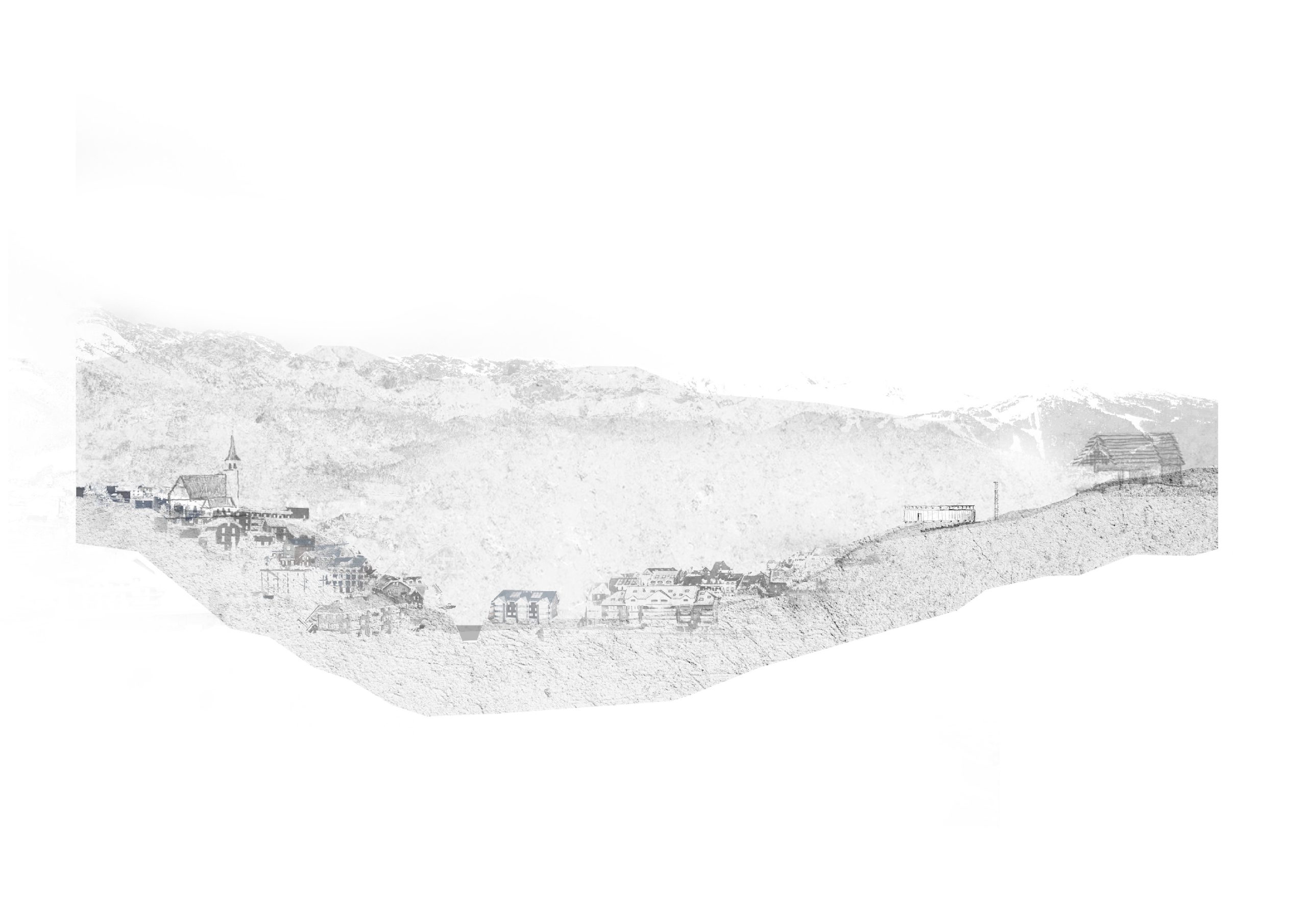
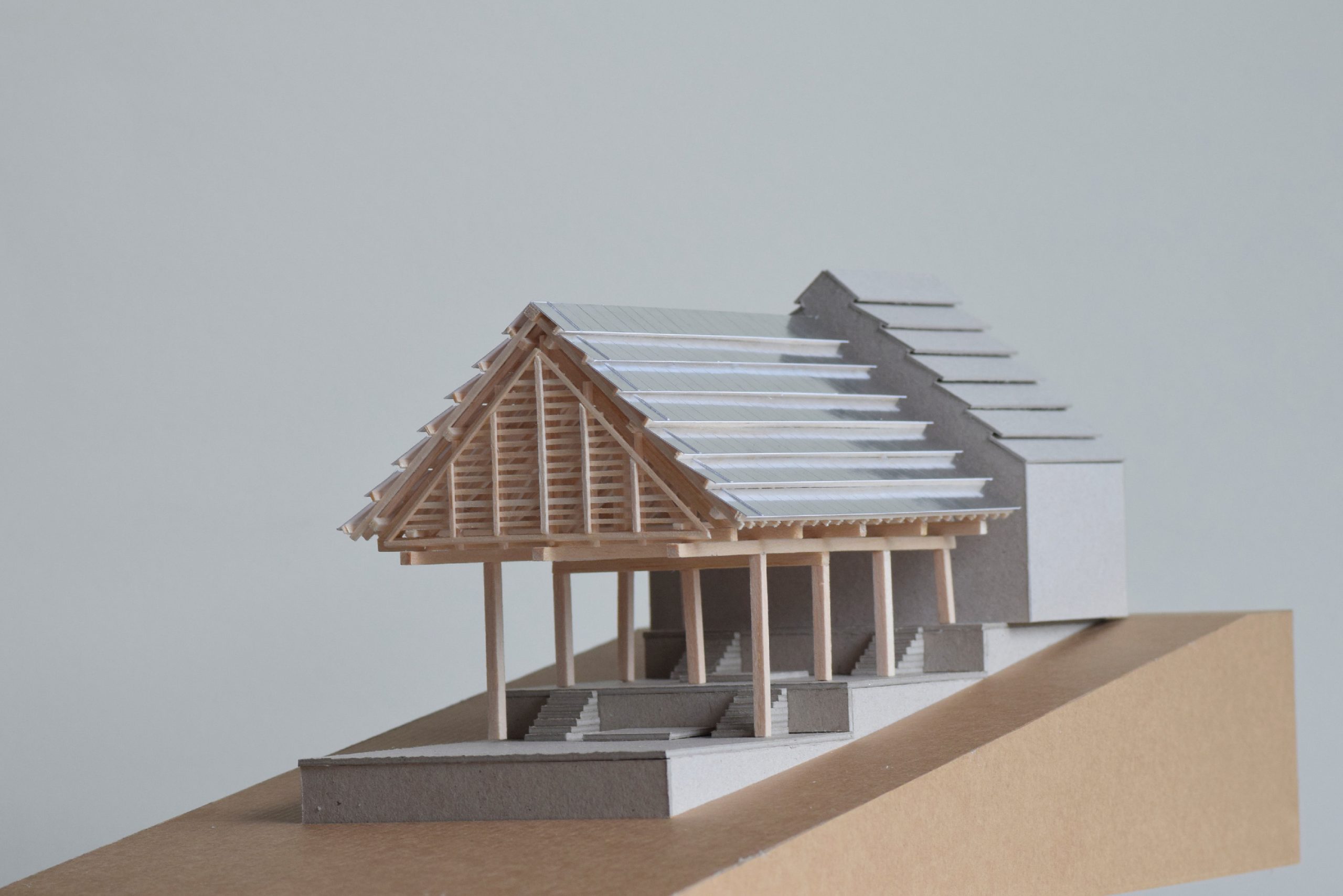
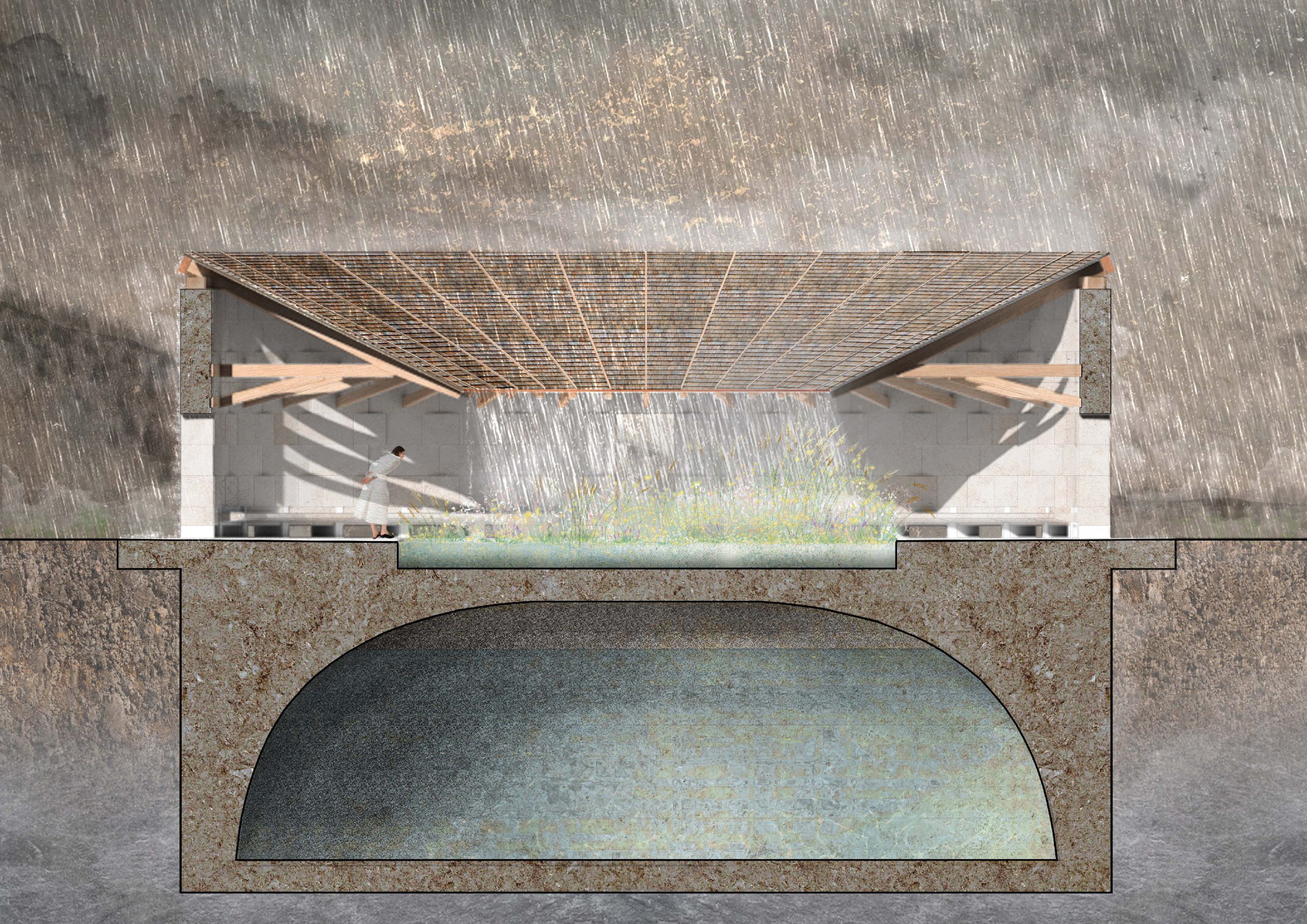
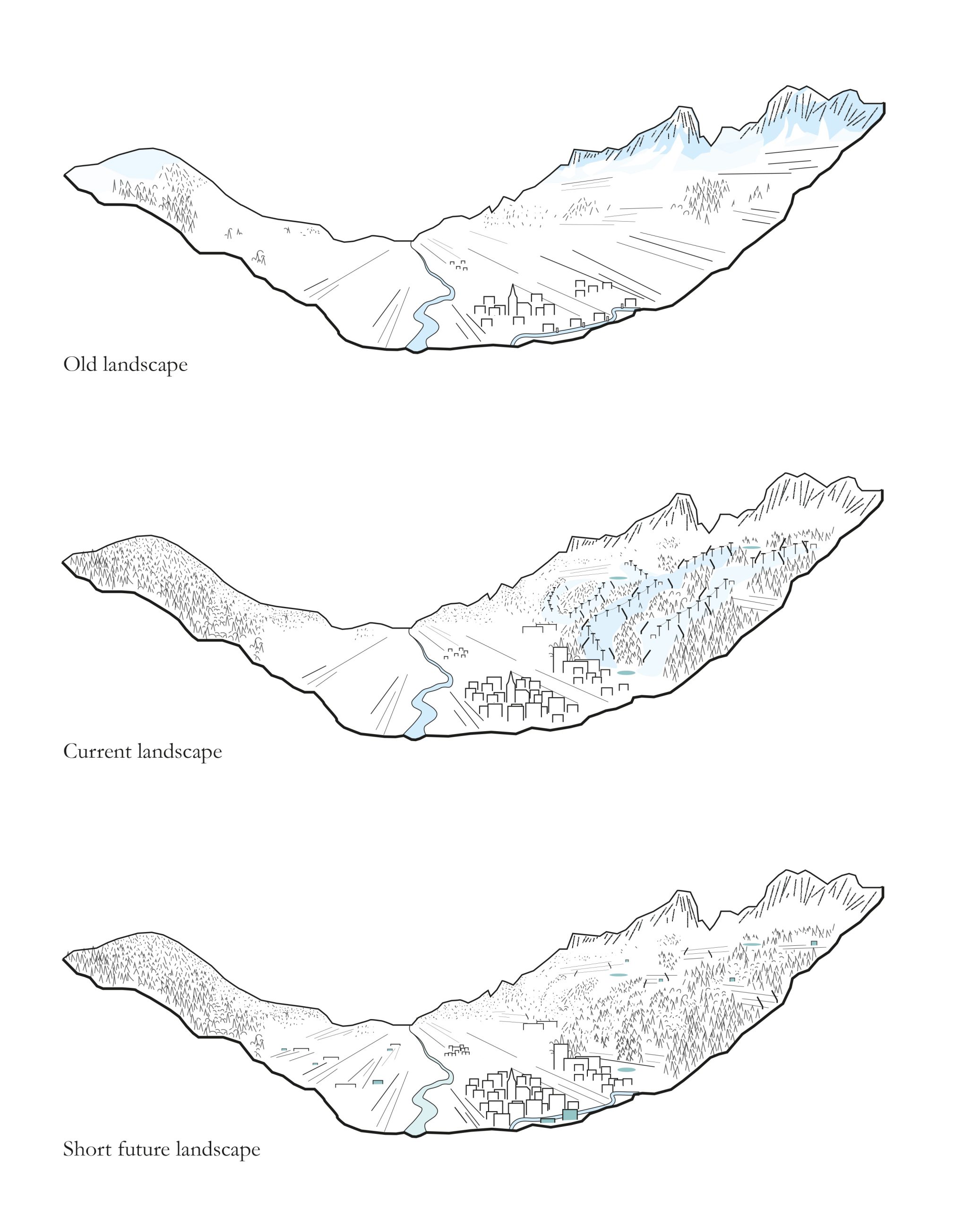
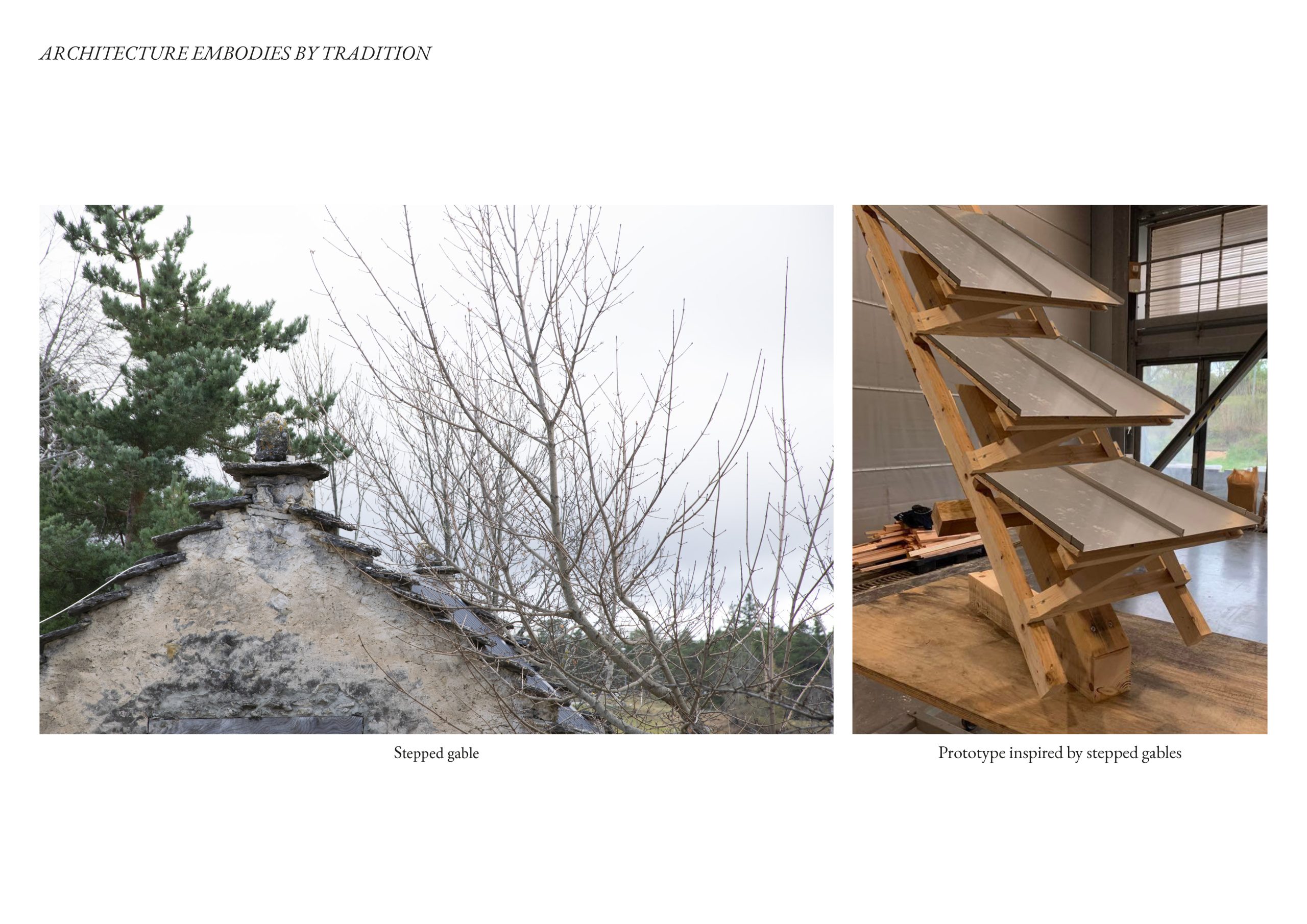
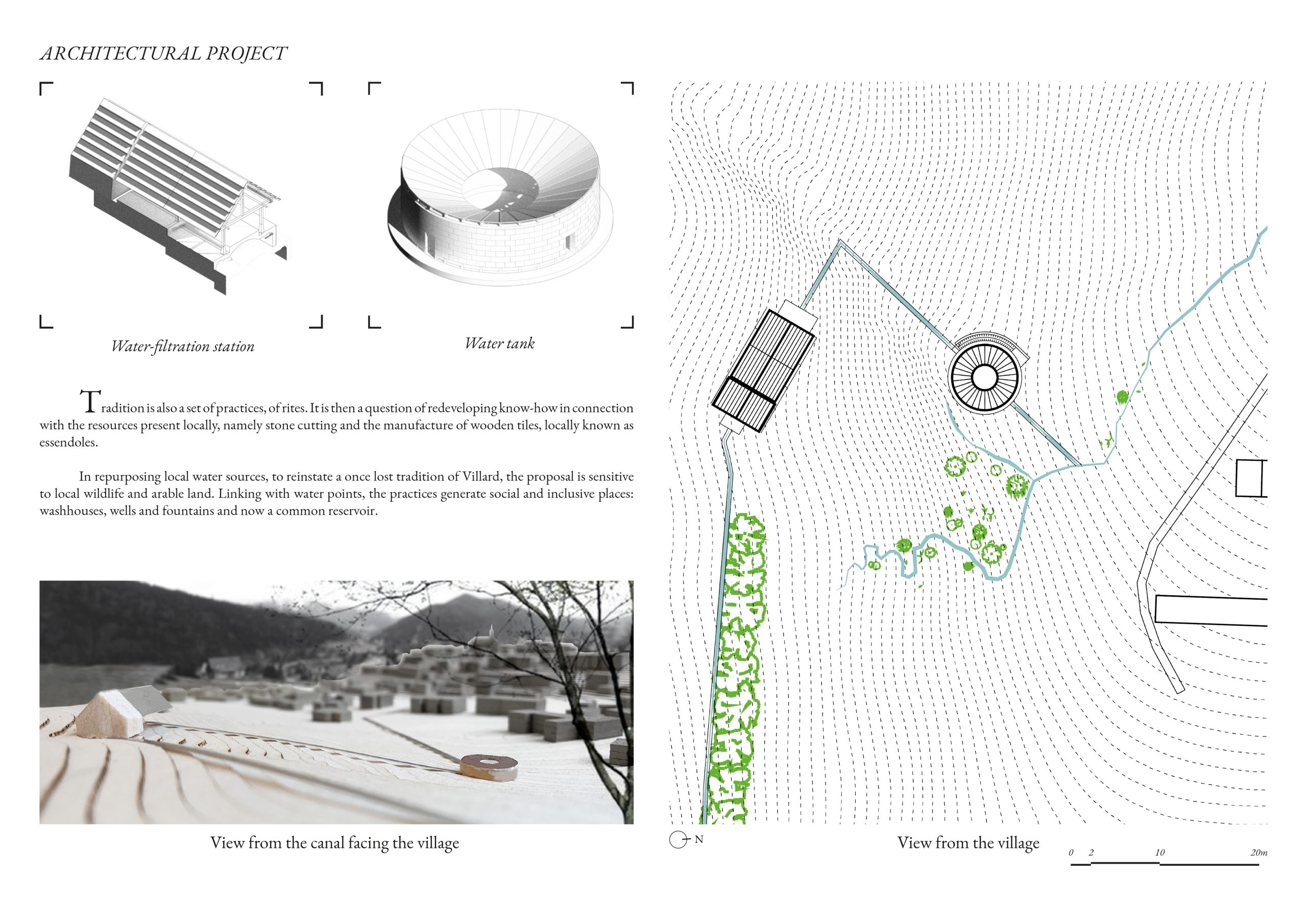
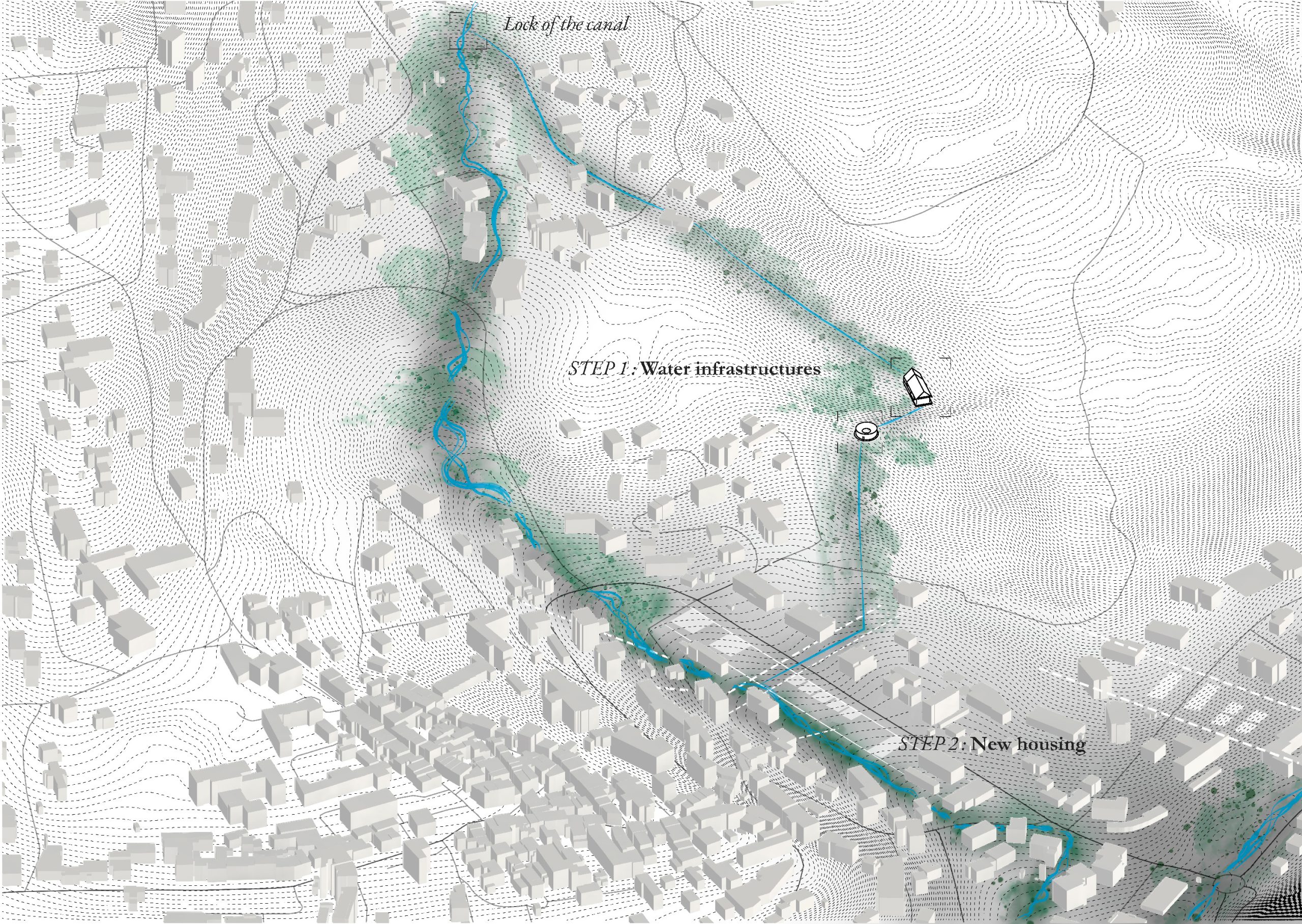
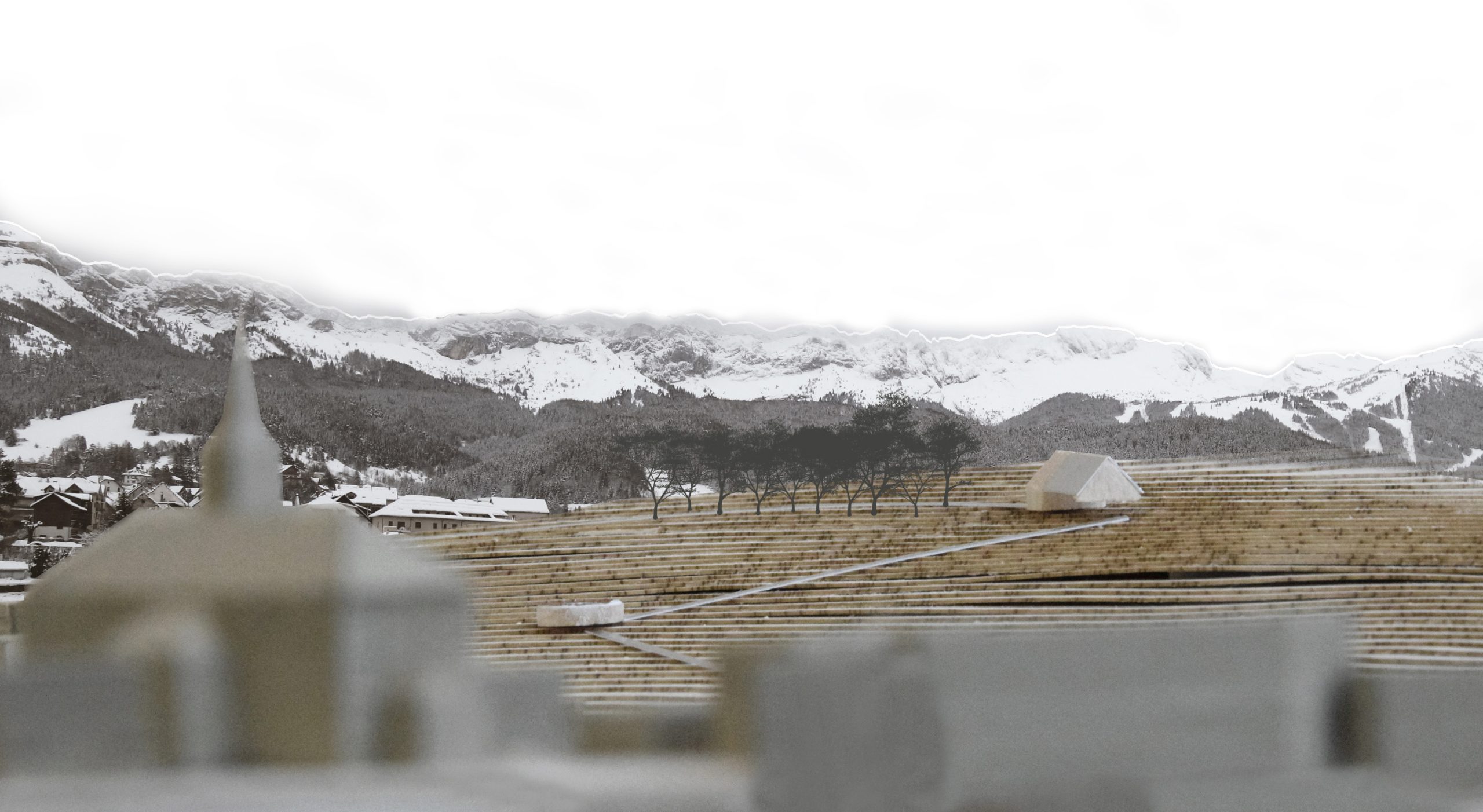
In order to preserve its industry, the local authority plans to develop a reservoir on a hill facing the village, which would collect and transform water into artificial snow for its ski resorts. It is in this context that we believe a counter-proposal is necessary to (re)connect Villard’s past and future, through the Quartier des Bains district. This will offer an opportunity for long-term stewardship, and for collaboration between the council and local community to put local people in the heart of this process, with 3 key elements: water, public amenities and material sourcing.
With an expected increase in water stress and scarcity over time, the project provides an opportunity for Villard to develop a self-sustaining water supply by reconnecting with a medieval mountain stream instead of pumping water downstream. The project argues that this water should not be used to sustain Villard’s ski industry and snow cannons, but rather to supply households directly. These issues are made tangible and visible through the project, by raising a waterway above ground and making the filtering station and the reservoir accessible to the public and wildlife, thus creating the possibility for mindful encounters between water and nature. This develops an alternative appeal for Villard, enriching the town with amenity spaces and new pedestrian routes and making it more than a ski resort with mere seasonal attraction, thus ultimately transforming the town’s cold beds into permanent housing.
The aim of this proposal is to begin the hydrological transition in Villard-de-Lans, towards a more sustainable and self-sufficient water supply. We offer a row of medium density housing, relevant to its mid-mountain and alpine context with multi-generational and flexible approaches to housing. The housing must be adaptable for long-term use with an active ground floor offering mixed-use opportunities for employment and the provision of outdoor amenity spaces for social interaction. All contribute to the creation of a denser, more interconnected and self-sufficient alpine urban village.
The project reconnects with local building tradition by primarily using timber and stone, sourced in a sustainable way. For each step, we aim to re-address the balance for a more sustainable and resilient use of resources that can mitigate housing and demographic challenges indirectly.
Linking with water points, the practices generate social and inclusive places: washhouses, wells and fountains and now a common reservoir. We consider this project bridging the gap between heritage and utopia. Moving Villard and its residents towards a future where it is more aware of, and responsible for, its resource management. A resilient territory, based on the environment as an ecosystem. Uninhabitable because it offers everyone the conditions to achieve their full potential. Livable because it is aware of its riches. Desirable because it is not available but achievable. Épanoui, fécond.
